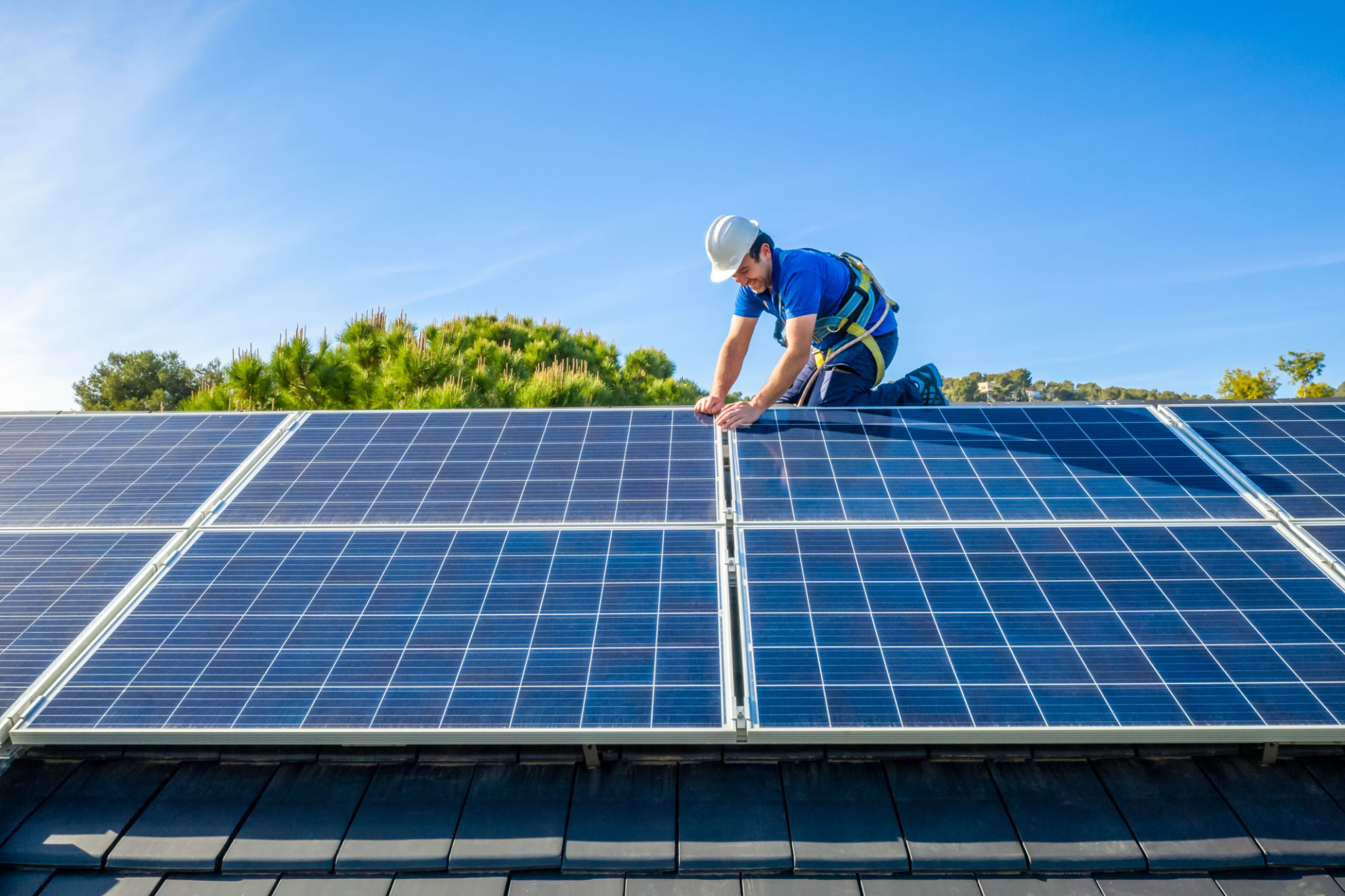The Ultimate Guide to Choosing the Right Solar Panels for Your Home
Understanding Solar Panel Basics
Investing in solar panels for your home is a significant decision that can lead to long-term savings and environmental benefits. However, with various types and options available, choosing the right solar panels can seem daunting. This guide will help you understand the key factors to consider when selecting solar panels for your home.

Types of Solar Panels
The first step in choosing the right solar panels is understanding the different types available. The most common types are:
- Monocrystalline Panels: Known for their high efficiency and sleek appearance, these panels are made from a single crystal structure.
- Polycrystalline Panels: Slightly less efficient than monocrystalline, but often more cost-effective. They have a bluish hue due to their multifaceted crystal structure.
- Thin-Film Panels: Lightweight and flexible, these panels are less efficient but can be a good choice for certain applications.
Evaluating Efficiency and Performance
Efficiency refers to how much sunlight a panel can convert into electricity. Higher efficiency panels produce more power, which can be crucial if you have limited roof space. Consider the following:
- Efficiency Ratings: Look for panels with higher efficiency ratings, especially if your roof space is limited.
- Temperature Coefficient: This measures how well a panel performs at higher temperatures. Lower coefficients are better as they indicate less performance loss in heat.

Assessing Your Roof and Energy Needs
Your roof's size, shape, and orientation significantly affect the number of panels you can install and their overall performance. Analyze the following aspects before making your decision:
- Roof Orientation and Tilt: South-facing roofs with a tilt between 15 to 40 degrees typically offer the best performance.
- Shading: Ensure trees or nearby buildings do not shade your roof, as this can reduce panel efficiency.
- Energy Consumption: Review your past energy bills to estimate your energy needs and determine the number of panels required.
Considering Costs and Incentives
The cost of solar panels varies based on their type, efficiency, and brand. However, it's important to factor in potential savings from reduced energy bills and available incentives. Here are some considerations:
- Initial Investment: While high-efficiency panels may cost more upfront, they can offer greater savings over time.
- Government Incentives: Research federal, state, or local incentives that can offset installation costs.

Selecting the Right Installer
A reliable solar installer can make a significant difference in the quality and performance of your solar power system. When choosing an installer, consider:
- Experience and Reputation: Look for installers with positive reviews and industry certifications.
- Warranty and Support: Ensure they offer robust warranties and after-sales support to address any future issues.
Maintaining Your Solar Panels
Proper maintenance ensures your solar panels operate at peak efficiency. Regular cleaning and periodic checks by professionals can help keep them in optimal condition. Here are some tips:
- Regular Cleaning: Dust and debris can accumulate on panels, reducing efficiency. Clean them periodically based on local conditions.
- Professional Inspections: Schedule annual inspections to identify and fix any issues promptly.

Conclusion: Making an Informed Decision
Choosing the right solar panels involves careful consideration of several factors, including panel type, efficiency, roof suitability, costs, and installer selection. By thoroughly evaluating these aspects, you can make an informed decision that meets your energy needs and maximizes your investment in solar technology. Remember, each home is unique, so tailor your choices to fit your specific situation and objectives.